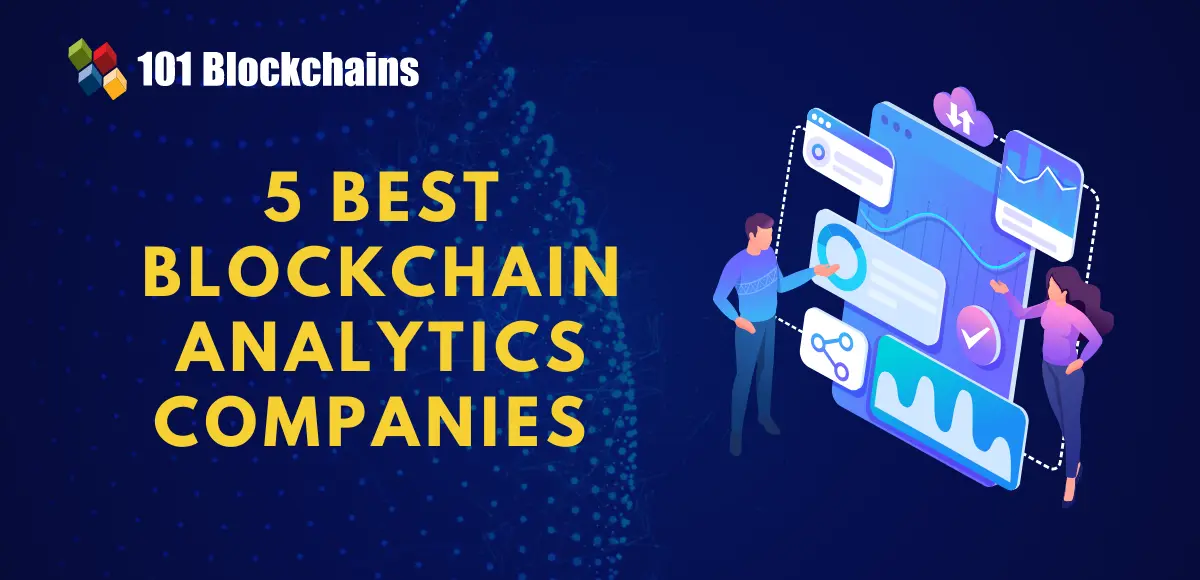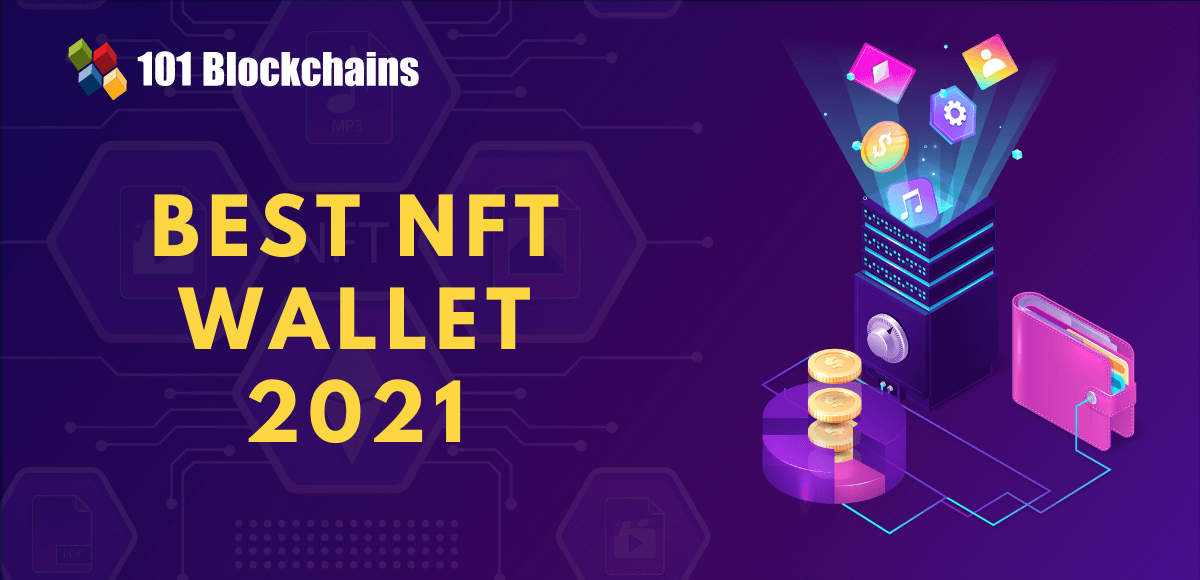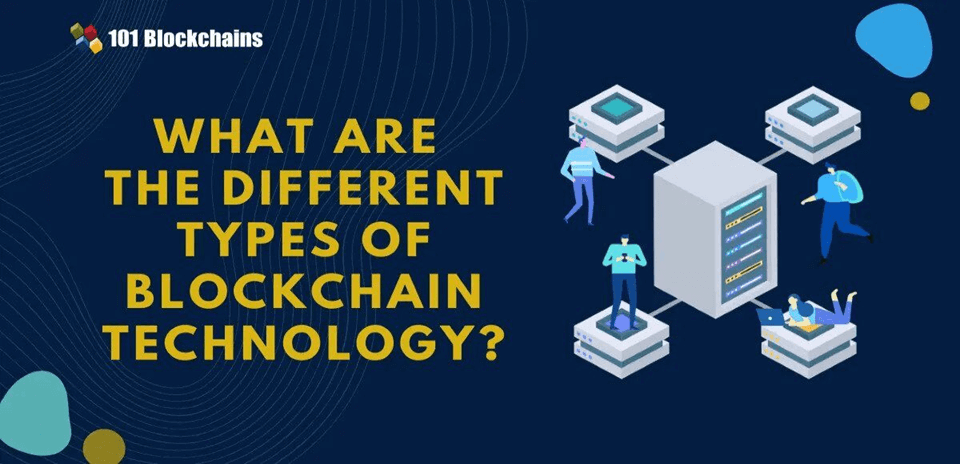Learn how blockchain truly works, master key definitions, and uncover what makes smart contracts so "smart." Dive into the fundamentals, gain valuable insights, and start your blockchain journey today!
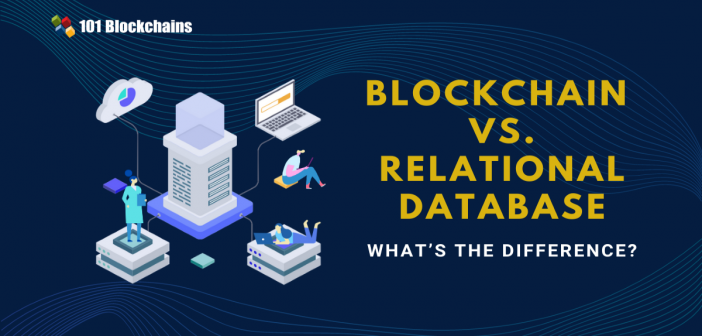
- Reviews
Diego Geroni
- on August 04, 2021
Blockchain Vs Relational Database: What’s The Difference?
Blockchain technology is one of the wonders in the world right now. But what’s so crazy about a ledger system? Can’t the previous database models solve all the issues already? To answer all your questions, we are bringing the comparison of blockchain vs relational database.
Both relational database and blockchain is perfectly capable to handle the tasks of enterprise companies. Right after the development of blockchain, the world is going crazy over it. But if relational database is perfectly capable for the job, why do we need blockchain? The truth is even though relational database can offer good value, still it falls behind in many categories compared to blockchain. Both of these ledger models are extremely popular, and some of you may be skeptical about whether blockchain is worthy enough to replace this already existing model. We’ll check out just that.
Build your identity as a certified blockchain expert with 101 Blockchains’ Blockchain Certifications designed to provide enhanced career prospects.
What Is Blockchain Technology?
In the blockchain vs relational database, you have to know about both of the technology before figuring out how they are different. That’s why we are giving a brief explanation of blockchain technology at first. So, what is blockchain technology? Well, it’s a ledger system that is decentralized and distributed. More so, it also offers data integrity, transparency, and so on.
In simple terms, blockchain would be connected in a chain-like format. It means that any data in the ledger will take on a chain-like structure. So, just imagine the structure of blocks that are interlinked together. Furthermore, a block will be linked to the previous and after blocks. As a result, all the blocks create a chain of blocks, thus the name.
More so, every single block on the ledger will have data or information about the transaction. So, what about the security of those transactional data? Well, every single block will be cryptographically encrypted. Another cool thing about blockchain is that it will have a cryptographic Hash ID that no one can reverse engineer. You might think of blockchain as a database that just stores information. However, the difference is immense. In reality, both of them are quite different, and we’ll get into that shortly in the blockchain vs relational database comparison.
Blockchain is, by default, immutable. So, it means that no one can modify any form of data whatsoever. Thus, any information that gets into the system once can never be altered or deleted. As a result, it will stay in the ledger forever. It’s also a peer-to-peer connection, so there would be no central governing authority that can spy on you or your information. That’s why blockchain is considered a technology for the users, not the governing authorities.
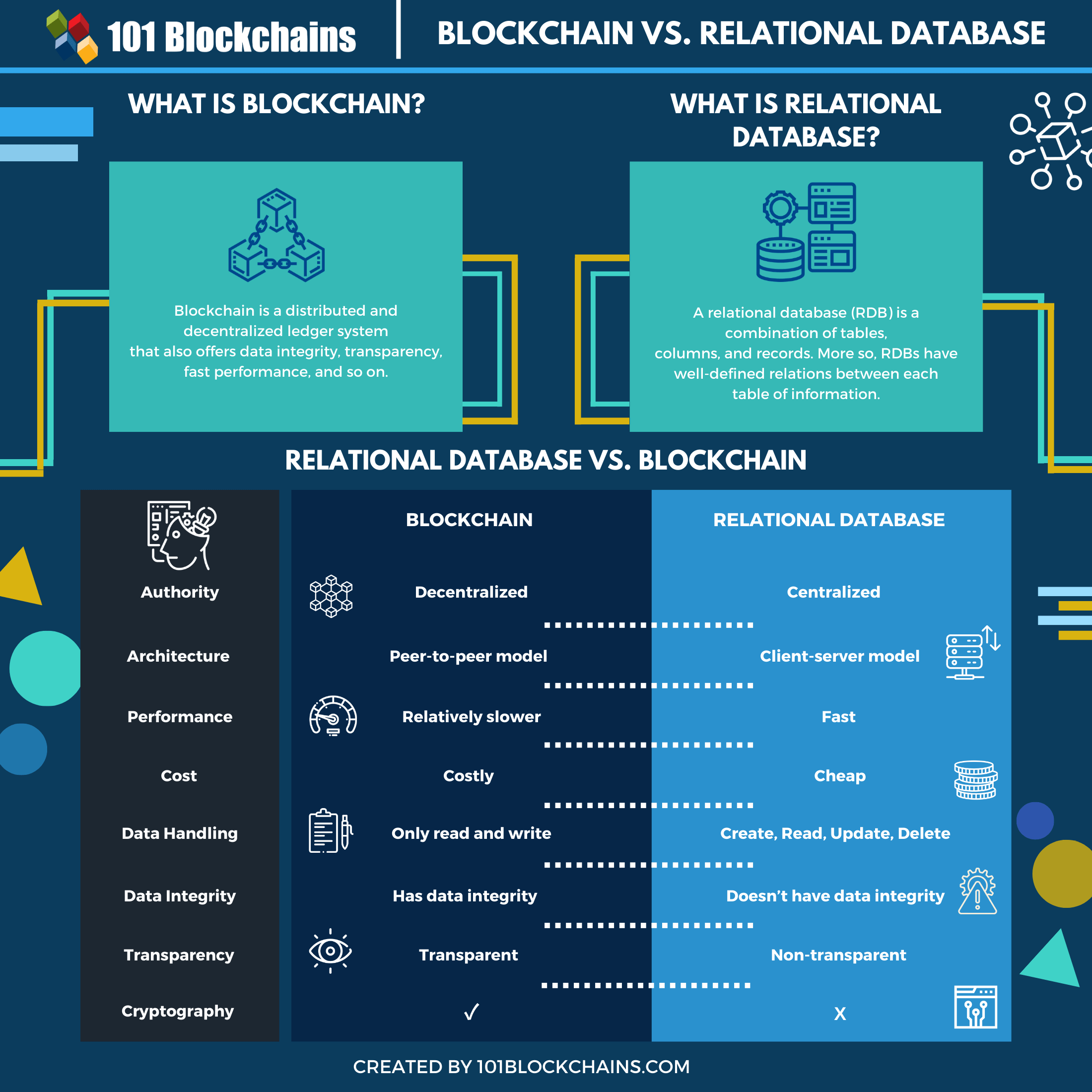
Please include attribution to 101blockchains.com with this graphic. <a href='https://101blockchains.com/blockchain-infographics/'> <img src='https://101blockchains.com/wp-content/uploads/2020/01/blockchain-vs-relational-database.png' alt='blockchain vs relational database='0' /> </a>
How Does It Work?
Now that you know what blockchain is in this blockchain vs relational database comparison guide, it’s time for you know how it works. But before we begin, let me clear some of the terms to help you understand the technology better.
The ledger system contains all the information or changes that happen in the system. Furthermore, all the data changes in the system are called “transactions.” In the early days of adoption, everyone thought that blockchain is only suited for transacting cryptocurrencies. However, the scenarios have completely changed. Now it can transact a lot more, and it’s still evolving.
Anyhow, all the users on the system are nodes, and they get a copy of the ledger system. In reality, blockchain technologies can differ from one another, and nodes can communicate with each other using various methods.
-
The Process
To make it work, first of all, a node will ask for a transaction. To transact and receive transactions, you’ll need two keys – private and public keys. With the public key, another node can find you on the network, and with the private key, you can sign a transaction. After the transaction request, a block containing all the information gets created. But, the information is all encrypted to avoid any security faults.
After that, it gets broadcasted throughout the system to all other nodes that can participate in the verification. And so, to complete it, other nodes have to vote or come to an agreement that the transaction is truly valid. Additionally, to reach an agreement, they will use consensus algorithms. In reality, there are various algorithms that can help the nodes reach an agreement. So, after the nodes declare the transaction as valid, it will get executed and get a place in the ledger.
Get familiar with the terms related to blockchain with Blockchain Basics Flashcards.
What Are The Benefits Of Blockchain?
Anyone who wants to use the technology needs to learn about how technology truly offers. How else would you know if this technology is worth it or not? Thus, we’ve compiled the top benefits of this technology. Let’s take a look.
-
Better Transparency
Transparency is a huge issue when it comes to centralized systems. Through decades, organizations tried to make the system more transparent and get rid of any corruption. But, the centralization of the networks can’t make it 100% transparent. However, with blockchain, it’s relatively easier to reach full transparency. In reality, the technology itself doesn’t need any centralized force. As a result, everything is open for all users to see. Even though there are private blockchains, still the nodes within that system can also see a lot of information. More so, the peers validate every transaction so, there’s no way anyone can change the value as they please.
-
Enhanced Security
Blockchain comes with a heaping amount of security compared to traditional record-keeping technologies. As you already know, all the transactions on the system have to obey the rules of consensus. So, after full verification, it gets on the ledger. More so, every single block is encrypted with a unique hash. Anyone that tries to change the value in the transaction will evidently change the Hash ID as well. Thus, the block will then separate from the original chain and become invalid. More so, blockchains offer other layers of security in every vulnerable point, such as additional security protocols in the authorization process and so on.
-
Decentralization
In reality, blockchain is, by default, decentralized. But how? How does it function properly without any governing authority? Well, the peers actually work together to form the structure of the system. They will maintain the ledger, and they will make sure that everyone gets the same treatment.
As a result, there’s no case of corruption, and there’s no sole high-powered user that can control everyone. Although there is a certain private and permissioned blockchain (Hyperledger, Corda, Enterprise Ethereum, Quorum, Ripple) that might not seem fully decentralized. But they also offer other methods that can help reach a decentralized environment.
Start your blockchain journey Now with the Enterprise Blockchains Fundamentals
-
Reduced Costs
Managing and improving legacy systems takes a lot of money and resources. More so, the systems are money pits. No matter how much you spend, you can’t make it work more efficiently. Thus, the entry of blockchain can help in reducing all the costs. The investment might seem like a costly option at the start, but for a one-time upgrade, you are getting a lifetime of revenues. Using the technology, companies can reduce all their error-full operations and streamline a strategy that can increase their revenues. You might think that it doesn’t work, but currently, many people are using this technology, and they know how it’s changing their company’s future.
-
True Traceability
With the help of blockchain technology, enterprises can reach true traceability in their supply chain management system which will benefit both the suppliers and the manufacturers. In production lines, no one can account for the supplied products that come into the factory. But blockchain can trace your elements right from the source in real time.
-
Highly Efficient
Blockchain can help your company to increase efficiency to a great extent. How? In really, blockchain solves all the problems that delay the processes of a company. For example, usually, a transaction through a traditional bank takes about 1-3 business days. But if it’s international, it may take up to 6 days to process.
That’s a lot of time wasted just to make payments or receive payments. But blockchain can complete the transactions as fast as within a few seconds. So, you see, not only will you save time, but you can even cut down the extra fees for any global transactions.
Start learning Blockchain with World’s first Blockchain Skill Paths with quality resources tailored by industry experts Now!
What Is Relational Database (RDB)?
A relational database is a combination of tables, columns, and records. More so, RDBs have defined relations between each table or set of information. Basically, the set of information is organized heavily to help find the right data at the right time. Anyhow, the tables will communicate and feed each other information when you need it. In reality, a relational database management system uses Structured Query Language (SQL) to offer easy programmable access to the database interaction. A relational database management system can organize information using various methods. And the enterprises that use it will define how it will organize the data in the system.
What Are The Advantages Of The Relational Database Management System?
-
Data Consistency
The relational database management system excels at maintaining data consistency across several instances. In reality, there are several tables in the system that are interlinked with each other. So, when there’s a change that happens in one of the tables, it atomically updates any linked tables as well. For example, when someone withdraws money from the ATM, he/she can also see the change in their remaining balance.
-
Atomicity and Commitment
Every relational database follows business rules very thoroughly. Thus, it will only perform those tasks that go with those business commitments. For example, if the database tracks a record of three elements that go with each other, it will only update the value if it can maintain the other two tables as well. So, if it can’t make the same commitment in other tables, it dismisses the request.
-
Simplicity
The data management in the relational database is quite simple. It only comes in rows and columns. Thus, there’s no complexity to it. More so, the table structure is familiar for any user, and they can use it without knowing any other aspects.
Furthermore, every single data on the system is carefully organized as well.
-
Ease of Data Retrieval
Retrieving data from this kind of database is super easy. In reality, they come with a lot of query commands that you can use to fetch the exact information you are looking for. More so, you can combine the tables to retrieve other information from many tables at one go.
Thus, filtering the ones you need is easy.
-
Flexibility
The best part about relational databases is the scalability. You can expect it to scale to a great extent, and the performance won’t degrade in any way. Thus, it offers a flexible structure that you can change anytime without any issues at all.
Adding new information or updating existing ones is straightforward. Anyhow, if there are too much information and the system doesn’t have the resources to deal with that, it can eventually become a bit slow.
-
Concurrency and Database Locking
Well, conflicts can easily arise in the relational database when two users want to make changes in the same table. To avoid it, the database locks down the table as one user is accessing it. But it can limit the application performance if it locks down the whole table. Thus, many databases can lock down the specific record to keep the application running even if it’s being updated.
Not sure how to build your career in enterprise blockchains? Enroll Now in How to Build Your Career in Enterprise Blockchains Course
Relational Database Vs Blockchain Technology: Full Comparison
-
Authority
The first major difference between a relational database vs blockchain technology is that they have different authoritative systems. In a relational database system, there is always a form of centralized authority. There is no form of decentralization in the architectural model of the system. Basically, what it does is that it offers a sole control to the administrative authority and they can make changes as they please.
On the other hand, blockchain technology offers a decentralized authority. What does it mean? Well, it means that it doesn’t have any central authority or middle man when to maintain the ledger. As a result, the users are in full control of what will happen in the system. Thus, no central authority can make changes as they want.
-
Architecture
Another great difference between a relational database vs blockchain technology is that they both have different architecture when it comes to their ledger system. Basically, a relational database system has a typical client-server model. Although it’s been the primary structure of our internet system for a very long amount of time, there are certain boundaries when it comes to this.
In reality, the client-server model is highly vulnerable to hackers and gets hacked every now and then. On the other hand, blockchain offers a peer-to-peer architecture rather than a client-server one. Here, users on the node can connect with each other using cryptographic protocols. More so, it increases the security status of the ledger system and, therefore, is very less prone to hacks.
Want to understand blockchain architecture advanced concepts such as development? Enroll Now: Certified Enterprise Blockchain Architect (CEBA)
-
Data Handling
Both technologies handle the data very differently. For a relational database, it supports CRUD. That means, in that system, users can Create, Read, Update, and Delete. In reality, with so much freedom to change or alter, the value in the system leads to a lot of corruption. People can just alter the value to get more benefits. More so, in many cases, the governing authority can change or delete information that is crucial for the company. All because of their personal gain.
On the other hand, blockchain only gives you read and write access. More so, in many cases, it can also restrict those two access form the mass people. So, here, you can only insert data once, and after that, you can’t update or delete it ever.
-
Data Integrity
Blockchain comes with a higher level of integrity compared to a relational database system. How? Well, first of all, anyone that tries to change the value in the transaction will evidently change the Hash ID as well.
Thus, the block will then separate from the original chain and become invalid. More so, blockchains offer other layers of security in every vulnerable point, such as additional security protocols in the authorization process and so on. As a result, technology preserves data integrity in every way possible.
But not in the relational database. In reality, they offer auto error detections and mandatory autofill. It means that no one can leave any rows or columns in the table empty. More so, it can also outline what kind of information would go there like numbers or characters. But it can’t stop other people from changing that information.
Curious to learn about blockchain implementation and strategy for managing your blockchain projects? Enroll Now in Blockchain Technology – Implementation And Strategy Course!
-
Transparency
Another great property of the technology is that it offers full transparency when it comes to verifying the data. Thus, anyone on the network will trust the system as it operates based on the full-proof algorithm. More so, in public blockchains, the ledger system is up for everyone’s view. However, in private ones, the view option may be limited based on the predefined criteria.
On the other hand, the relational database system doesn’t offer transparency at all. It’s fully centralized, and the users have no way of knowing whether the database has the right information or not. More so, they can’t even verify whether these are right or wrong. As a result, users are slowly losing their trust in the system.
-
Cost
Well, I guess this round technically goes to relational databases. Why? Well, relational databases are legacy networks, and they have been around for a really long amount of time. Thus, implementing them isn’t that time-consuming. However, compared to traditional databases, a relational database does take more time to setup. But it’s also cheap.
On the other hand, blockchain is just a new addition to the world right now. It’s also on the verge of evolving and, thus, is quite complex to setup. As a result, the resource for implementing blockchain is a bit expensive. Even the talents you would hire for doing the job have higher payment. So, you see, it will cost you more to upgrade to the blockchain system. But in the long run, the investment will surely be worth it.
-
Performance
This attribute gives a much more mixed output. In reality, when it comes to a relational database, you’ll get a much faster output compared to blockchain. But how does a legacy network take less time to work? Well, it’s because the relational database system doesn’t have complex functions like consensus or any other protocols that can slow down the system.
More so, as the central authority manages the system, there’s no overwhelming traffic hogging all the bandwidth. Blockchain, on the other hand, is much faster when there are limited numbers of nodes. But when that number starts to rise, the system becomes slower over time. So, the performance of blockchain varies with time.
-
Cryptography
Lastly, the relational database doesn’t have any encryptions within the system. It’s not like you can’t encrypt the information. But the issue is, in the database, users query about finding certain information fast using the relations among the tables. But if you use encryptions, the system would have to decrypt all the values one by one before knowing which one is needed.
Thus, it creates a security loophole for the database. On the other hand, blockchain offer cryptography to secure all the information in the system. Anyone that would try to change the value would end up with a completely different outcome. The encryption is solid, and there’s no way anyone can change that.
Blockchain Vs Relational Database: Comparison Table
| Blockchain | Relational Database | |
|---|---|---|
| Authority | Decentralized | Centralized |
| Architecture | Peer-to-peer model | Client-server model |
| Performance | Relatively slower | Fast |
| Cost | Costly | Cheap |
| Data Handling | Only read and write | Create, Read, Update, Delete |
| Data Integrity | Has data integrity | Doesn’t have data integrity |
| Transparency | Transparent | Non-transparent |
| Cryptography | ✓ | × |
Conclusion
Blockchain and relational databases have similarities, and also they are very much different from each other. If you think that you can use them interchangeably, then you are very wrong. In reality, relational databases were one of the best upgrades form the traditional database system. However, it still comes with a lot of flaws.
As a result, blockchain, a new form of ledger system, is here to replace it. Obviously, it also has some limitations, but it’s already so much better than relational databases. In the end, it’s up to you to pick what you should use for your company.
*Disclaimer: The article should not be taken as, and is not intended to provide any investment advice. Claims made in this article do not constitute investment advice and should not be taken as such. 101 Blockchains shall not be responsible for any loss sustained by any person who relies on this article. Do your own research!



